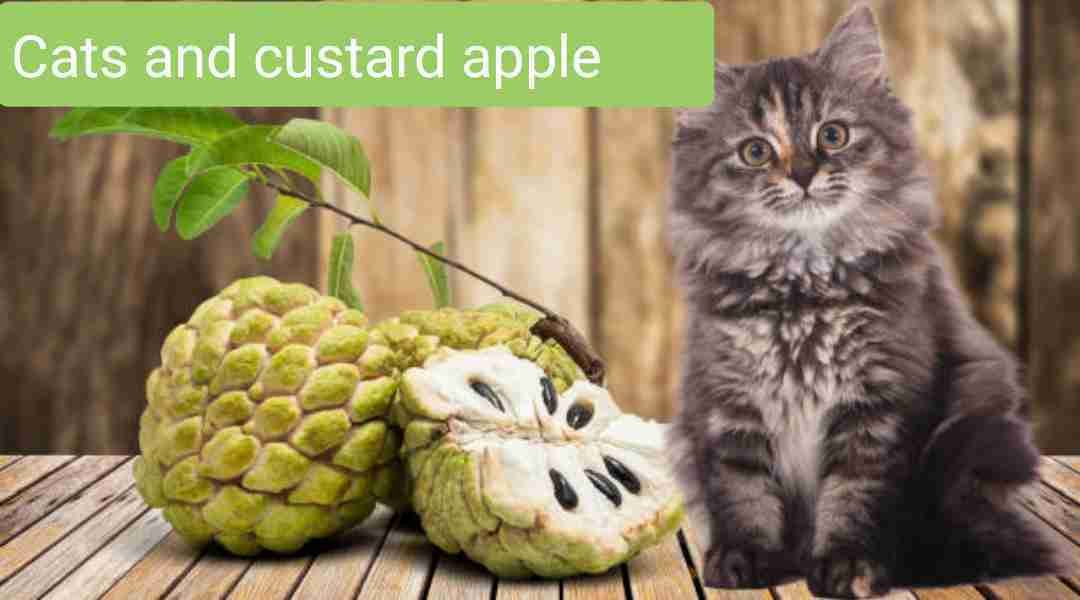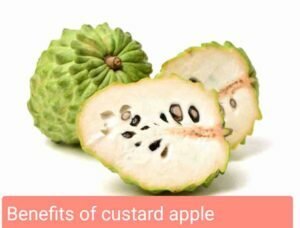Can Cats Eat Custard Apple? 5 Benefits and Risks You Should Know

Can cats eat custard apple? Custard apple is also known for its medicinal properties. It is believed to have antibacterial, anti-inflammatory, and antioxidant properties. It is also beneficial for treating digestive problems, skin diseases, and even diabetes. But can cats eat custard apples?
Cats can eat fruits such as guava, watermelon, and even custard apple, but these foods are best served as treats occasionally, the cat’s digestive system and entire body system are made up in a way that they need most of their nutrients from meat, that is why most dry Kibble or wet cat food mostly from animal-based proteins– This doesn’t mean your outdoor cat shouldn’t enjoy a chilled custard apple when they return to the house. This guide encompasses everything you need to know about cats and custard apples.
Table of Contents
- What Is Custard Apple?
- Can Cats Eat Custard Apple?
- Benefits Of Feeding Cats Custard Apple
- Risks Involved With Eating Or Feeding Cats Custard Apples
- Can Cats Have Custard Apple? – Final Thoughts
What Is Custard Apple?
The custard apple, also known as a sugar apple or sweetsop, is a delicious tropical fruit native to Central and South America. It has a sweet and creamy flavor and is a great snack for those who enjoy something sweet and tasty. This fruit is a favorite among many people, especially in tropical countries.
Custard apple is an evergreen tree and it is commonly found throughout Central and South America, the Caribbean, and parts of Africa. The fruit is green when unripe and turns yellow or brown when ripe. The outside of the fruit is covered in a unique, bumpy skin. The inside of the custard apple is white, juicy, and filled with large, black/brown seeds.
The flavor of custard apple is sweet and creamy, making it a great addition to a variety of recipes. It can be used to make smoothies, juices, ice creams, puddings, jams, and even pies. Its unique flavor makes it the perfect ingredient for desserts. It can also be used to make jams, jellies, and spreads.
Can Cats Eat Custard Apple?
Yes, cats can eat custard apple. For cats that have allergies to dairy products, or if you don’t subscribe to giving your cat frosty paws and cool claws, custard apples contain the same nutritional value as dairy products. custard apple also helps in boosting your cat’s immune system and it’s an excellent source of dietary fiber, vitamin C, and other essential nutrients.
Custard apple which has the sweetsop and the soursop varieties has a blend of strawberry and pineapple taste with a custard consistency. the sweetsop doesn’t have a spine, while the soursop has a spine this is how you can differentiate them both.
Custard apple can make a great occasional treat for cats, but it should never be made a part of your feline friend’s regular diet because of its high sugar content. Also, custard apple contains 94 calories each, so feeding your cat custard apples every day can lead to us eating your cat’s daily calorie intake.
Benefits Of Feeding Cats Custard Apple

Custard apple is one of those fruits that cats can’t resist. It’s a sweet and tangy treat that cats love, and it can be a great way to add variety to your cat’s diet. But beyond being a tasty snack, feeding cats custard apple can provide a number of health benefits.
First and foremost, custard apples are a great source of vitamins and minerals. They’re packed with vitamin C, which helps cats fight off infection, and they also provide a good dose of potassium, which is necessary for healthy muscle and nerve function. They also contain some essential fatty acids, which can help promote a healthy coat and skin.
Custard apples are also high in fiber, which can help cats maintain a healthy digestive system. This is especially important for cats who are prone to constipation. The fiber in custard apple helps to keep the stool soft and prevents it from becoming hard and dry.
Custard apples also contain antioxidants, which can help to protect cats from free radicals and other environmental toxins. These antioxidants can also help to keep cats’ immune systems strong, which can help prevent any illnesses or infections.
Custard apples also provide cats with a great source of energy. The natural sugars in the fruit help to provide cats with sustained energy throughout the day. This can be especially beneficial for cats who are very active or who may need some extra energy to stay alert and focused.
Custard apples are a great way to keep cats hydrated. Since they contain a high percentage of water, they can help to prevent cats from becoming dehydrated, which can cause serious health problems.
Risks Involved With Eating Or Feeding Cats Custard Apples
Feeding a large quantity of custard apples to your cat can be risky. If you are considering feeding your cat custard apples, it’s best served as an occasional treat and there are certain risks to be aware of.
The first risk of feeding cats custard apples is that they may contain high levels of sugar. While cats may enjoy the sweet taste of the fruit, the sugar content can be too much for them. Cats do not have the same sugar cravings as humans, so it is best to avoid foods high in sugar.
The subsequent risk of feeding cats custard apples is that they can contain a variety of toxins. Custard apples contain saponins, which are toxic to cats. Saponins are found in many fruits, including custard apples. Saponins can cause gastrointestinal upset, nausea, vomiting, and diarrhea in cats.
Some cats may have an allergic reaction to custard apples. Cats can be allergic to many different foods, and custard apples are one of them. If your cat is allergic to custard apples, it may experience sneezing, itching, and rashes on its skin.
Can Cats Have Custard Apple? – Final Thoughts
Feeding cats custard apple can be a great way to keep them happy and healthy. Not only is it a tasty treat, but it can also provide a number of health benefits. So if you want to give your cat something special, try offering them custard apple in moderation.




